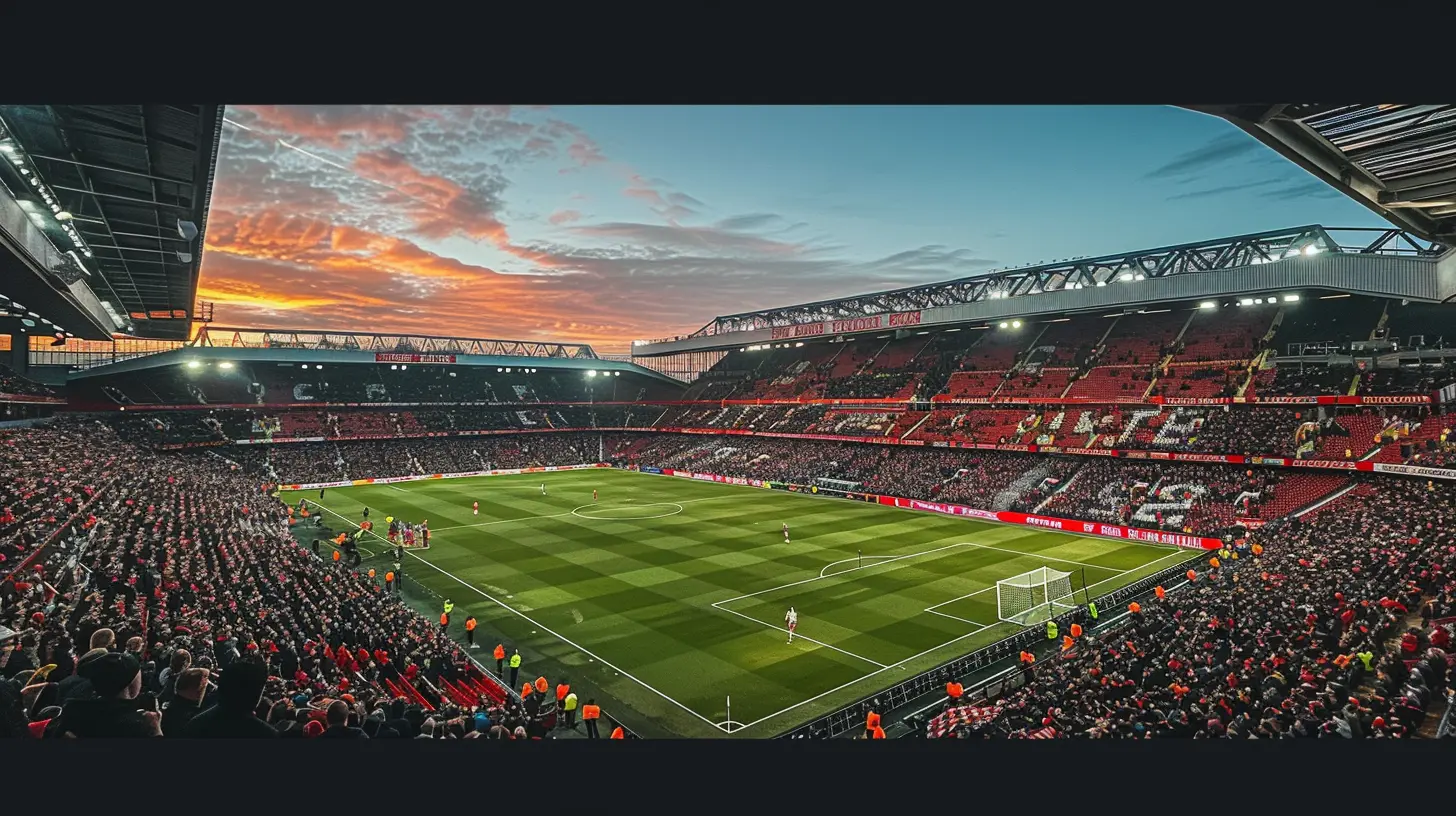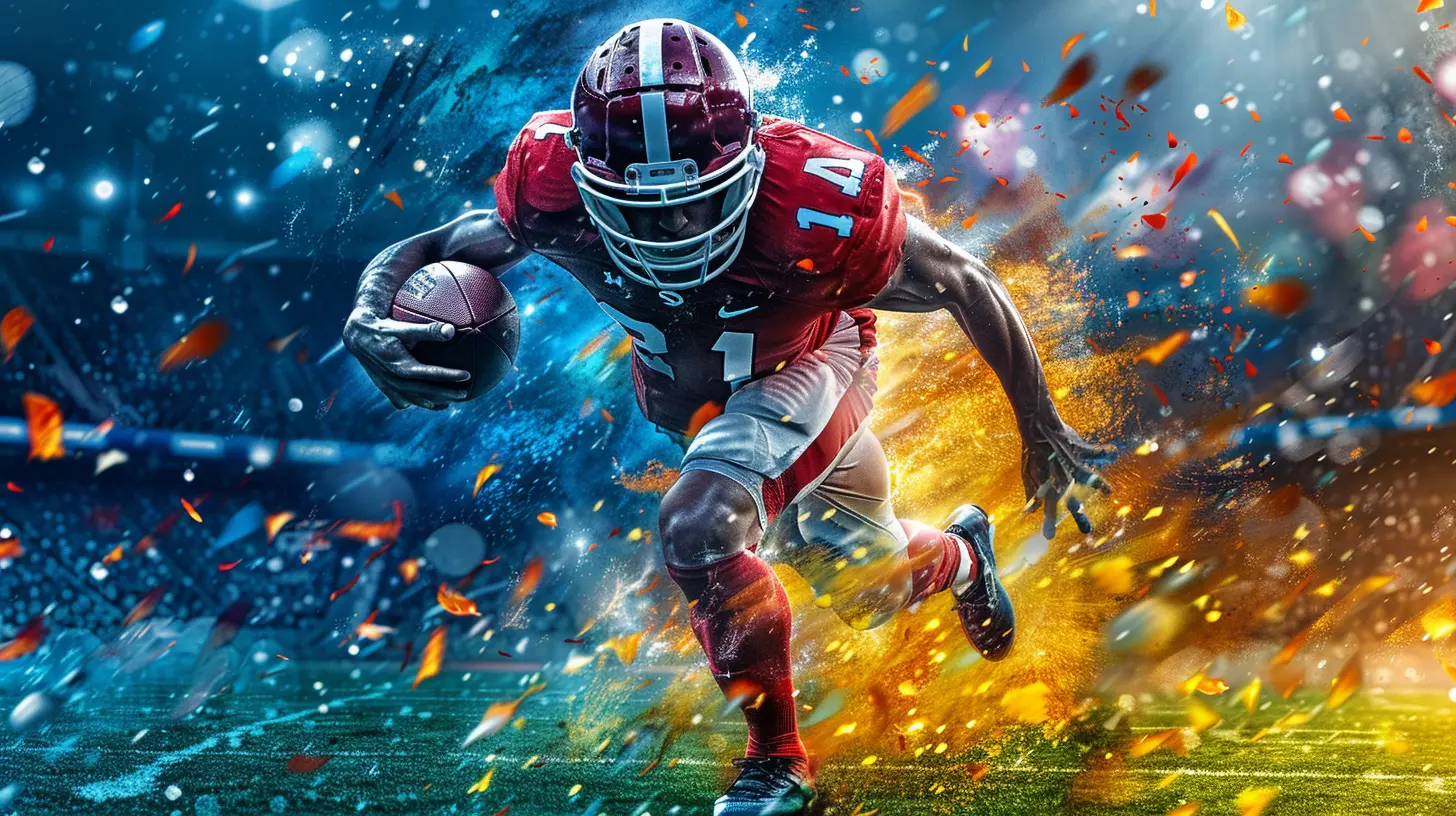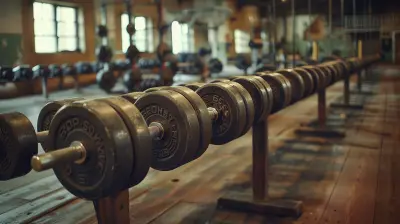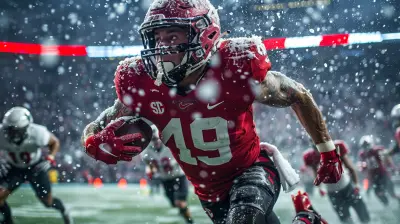24 April 2025
Professional sports leagues are a huge part of global culture. Whether it’s the NFL, NBA, Premier League, or La Liga, fans are completely engrossed in their favorite teams and players. But have you ever wondered what would happen if the fans had more than just emotional investment? What if they actually owned a part of the team?
This idea of fan ownership isn't just a fantasy anymore. It’s a concept that has been making waves across the sports landscape. But can fan ownership really change the future of professional leagues? Is it the revolution that sports need, or just another trend that will fade away?
Let’s dive in and explore how fan ownership could potentially reshape the very backbone of professional sports.

What is Fan Ownership?
Fan ownership, as the name suggests, is when fans hold a stake in their favorite sports teams. Instead of the traditional model where a few wealthy individuals or large corporations own teams, fan ownership gives everyday supporters a chance to literally own a piece of the team.It’s like owning stock in a company, but instead of profiting from a business, you're emotionally and financially invested in your favorite sports franchise. In return, fans often gain voting rights, participate in decision-making, and feel more connected to the team. It’s the ultimate dream for any die-hard supporter.
But does this model actually work? And more importantly, can it change the future of professional sports leagues?

The Origins of Fan Ownership
Fan ownership isn't an entirely new concept. In fact, it has been around for quite some time in European football, where clubs like FC Barcelona and Bayern Munich have been owned by their fans for decades. These clubs operate under a unique model in which fans, or members, become shareholders and have a say in key decisions, such as electing the club’s board of directors.For example, FC Barcelona operates under a "socio" model, where fans buy memberships and, in return, gain voting rights in important matters such as electing the club president. Similarly, Bayern Munich operates with 75% of its shares owned by fans, while the remaining 25% is owned by corporate sponsors like Adidas and Audi.
This model has managed to keep these clubs financially stable and competitive while still maintaining a close relationship with their supporters. But while fan ownership has been successful in European football, it’s far less common in North American leagues like the NFL, NBA, or MLB, where wealthy owners and corporate interests dominate.

The Appeal of Fan Ownership
The idea of fan ownership is incredibly appealing to many sports enthusiasts, and it’s easy to see why. It offers fans more than just a seat in the stands—it gives them a voice in how their beloved team is run.Think about it for a second. How many times have you seen your team make a decision that left you scratching your head? Maybe they traded your favorite player, fired the coach you loved, or refused to sign a much-needed free agent. In a fan-owned model, you could have a say in these decisions. You wouldn’t just be a passive observer; you’d be part of the process.
Fan ownership also creates a deeper emotional and financial connection between the team and its supporters. When fans own a stake in their team, they’re more likely to stay loyal, attend games, and buy merchandise. After all, it's not just a team anymore—it's your team.
Plus, fan ownership can help prevent teams from moving to new cities. In traditional ownership models, team relocation is often driven by financial motives. But in a fan-owned structure, the supporters have a say in whether the team stays or goes. This could potentially save teams from the heartbreak of leaving their loyal fanbase behind.

Can Fan Ownership Work in Major Leagues?
Now, here’s the big question: can fan ownership work in major leagues like the NFL, NBA, or MLB? It’s a tricky one.On the surface, fan ownership sounds like a fantastic idea. But when you dig deeper, you start to see some potential challenges.
First off, professional sports teams in North America are big businesses. We’re talking about billion-dollar enterprises here. The NFL, for example, generates tens of billions of dollars in revenue annually. Would fans really be able to buy a significant enough stake in a team to have meaningful control? And would current owners—many of whom are billionaires—be willing to give up power for the sake of fan involvement?
Moreover, major leagues have strict rules and regulations about ownership. In many leagues, ownership changes must be approved by other team owners or the league itself. This could make it difficult for fan ownership models to gain traction unless the league itself embraces the concept.
Then there’s the question of governance. Fan-owned teams would need to establish clear voting and decision-making processes to ensure that all fans have a voice. It’s one thing to have a small group of owners making decisions, but when you have thousands—or even millions—of fans involved, things can get a bit chaotic.
Still, it's not impossible. The Green Bay Packers of the NFL are one of the most famous examples of a successful fan-owned team. The Packers have operated as a publicly owned, not-for-profit organization since 1923. Their ownership model has helped them remain financially viable while maintaining a loyal and passionate fan base.
This proves that fan ownership can work in major leagues, but it requires a unique set of circumstances and a lot of careful planning.
The Benefits of Fan Ownership
So, what are the potential benefits of fan ownership in professional sports leagues? Let’s break it down.1. Stronger Fan Engagement
Fan ownership would undoubtedly increase fan engagement. When fans feel like they have a stake in the team, they’re more likely to be emotionally and financially invested. This could lead to higher attendance at games, more merchandise sales, and more widespread support.
2. More Accountability
In a fan-owned model, team decisions would be more transparent and accountable. Owners wouldn’t be able to make questionable decisions behind closed doors without facing scrutiny from the fans who hold a stake in the team. This could lead to better decision-making and a stronger connection between the team and its supporters.3. Preventing Relocation
One of the biggest fears for fans is seeing their team move to another city. In a fan-owned structure, fans would have a say in whether the team relocates, potentially preventing the heartbreak of losing their home team.4. Long-Term Stability
Fan-owned teams tend to prioritize long-term stability over short-term profits. Since the goal is to maintain a strong connection with the fanbase and keep the team competitive, there’s less pressure to make rash decisions that could harm the team in the long run.5. Community Connection
Fan-owned teams often have stronger ties to their local communities. After all, the fans are the ones who live, work, and breathe in the same city as the team. This sense of community ownership can lead to more philanthropic efforts, stronger local partnerships, and a team that truly represents its city.The Challenges of Fan Ownership
While fan ownership sounds great in theory, there are undoubtedly some challenges to consider. Here are a few:1. Complex Governance
One of the biggest challenges with fan ownership is governance. How do you make decisions when thousands of fans are involved? Establishing clear voting procedures and decision-making processes is essential, but it can also be complicated and time-consuming.2. Financial Limitations
Professional sports teams are expensive to run, and fan ownership may not always provide the necessary financial resources. Fans would need to pool their money together to buy a significant stake in the team, and not all fanbases may have the financial means to do so.3. Power Struggles
Fan ownership could potentially lead to power struggles between fans and other stakeholders, such as corporate sponsors or minority owners. Balancing the interests of fans with the financial realities of running a sports team could be a delicate juggling act.4. Resistance from Current Owners
Let’s face it: wealthy team owners are unlikely to give up their control without a fight. Convincing current owners to embrace fan ownership would be a major hurdle, especially in leagues where profit margins are astronomical.Could Fan Ownership Revolutionize Professional Leagues?
Fan ownership has the potential to revolutionize professional leagues, but it’s not a one-size-fits-all solution. While it has worked for teams like FC Barcelona and the Green Bay Packers, implementing fan ownership on a larger scale would require overcoming significant challenges.That being said, there’s no denying the appeal of fan ownership. It creates a deeper connection between fans and their teams, promotes transparency and accountability, and could potentially save teams from relocation. In an era where sports teams often feel more like corporate entities than community treasures, fan ownership could bring the heart back into professional sports.
Will fan ownership change the future of professional leagues? It’s hard to say for sure. But one thing is clear: the conversation has started, and fans are more empowered than ever before.
Conclusion
Fan ownership is a bold and exciting concept that has the potential to reshape the world of professional sports. While it comes with its fair share of challenges, the benefits of stronger fan engagement, increased accountability, and long-term stability are undeniable. As sports leagues continue to evolve, fan ownership could play a significant role in the future of professional sports.Would you want to own a piece of your favorite team? It might just be closer to reality than you think.




Ariella James
Absolutely, fans deserve this!
April 25, 2025 at 6:31 PM